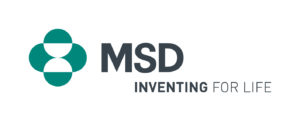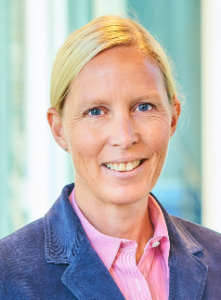For VBHC to work everyone in health care has a role to play
Two years ago, my family arrived in The Netherlands. After working for MSD in different countries, we settled in quite easily and loved our new home country right from the start. The Dutch are open, tolerant and innovative and the Netherlands is a very well-organized country, with a great infrastructure and in possession of one of best health care systems in the world. Also, from a professional point of view, I think it is great to be in the Netherlands at this moment in time, because this is the country where value-based health care is really gaining traction. And that’s a good thing!
This all sounds very positive, but as a representative of the innovative pharmaceutical industry I also experience a potentially dangerous downside in this beautiful country. Elsewhere stakeholders in health care seem to value pharmaceutical companies more. They look at us as a true partner in the search towards a future-proof, sustainable health care system. In the Netherlands however, we are still being looked upon more as ‘just a – very expensive… – supplier’, and less as a partner.
“It is great to be in the Netherlands at this moment in time, because this is the country where value-based halth care is really gaining traction.”
I strongly believe this can change in the near future. Just as the Dutch healthcare system will need to change to remain sustainable in the long term. Zooming in on value-based health care: I think that the VBHC-way of working can drive high quality and affordable care. But we don’t get there unless we collaborate. Everyone in health care has a role to play.
The drive to add value to health care professionals and patients was already part of MSD’s DNA long before Michael Porter invented the concept of VBHC in 2006. Now that Value-Based Health Care is gaining more ground internationally, we very much want to add value to this very promising concept so that patients and society can benefit from it.
Actually MSD already supports VBHC in several ways. Our medicines and vaccines play a large role in the value creation for the patient and are without a doubt ‘part of VBHC’. But there is more. For instance, MSD initiated ‘Calpro@home’. Together with hospitals we offer kits that patients with IBD (Inflammatory Bowel Disease) use to measure calprotectin levels at home. They use an app to share the results with health care professionals. Frequent and fast fecal calprotectin measurements can help predict flares and assist in proactive prevention. This may contribute to less invasive interventions, fewer hospital visits and a more efficient use of medication. With Calpro@home MSD strives to optimize both health outcomes and reduce treatment costs.
“We very much want to add value to this very promising concept so that patients and society can benefit from it.”
This is just one example, and at MSD we are in the process of developing many more. We believe in VBHC, because it enables us to connect the dots. Times are changing and in my opinion VBHC-thinking offers an excellent way to move forward. The pharmaceutical industry can be the enabler of VBHC to further develop, help implement and speed up this valuable process. What can other stakeholders expect from us and why do we want to be ‘in’?
To improve patient care and outcomes, to be a partner in the health care system, to provide the right patient with the right medicine at the right time, to aim for the appropriate use of our medicines and vaccines, to be part of the transition towards value-based payment, to secure a healthy innovation climate. We need all this on the way towards a future proof, sustainable business model. We have the tools and the skills and we are of good will.
I also want to be transparent about the fact that this is also very much in the interest of pharma itself: we want our innovative medicines and vaccines to be able to do their job! It is in our interest to reduce the cost and to improve health care. Therefore we do not only invent and develop medicines, but we also focus on prevention, for instance by inventing and providing vaccines, and we deliver solutions to reduce waste and to prevent under- or overtreatment.
In terms of footprint, MSD is the number one pharmaceutical company in the Netherlands. With over 4000 highly skilled employees, our mission is to help patients lead better and healthier lives. So they can spend more quality time with their loved ones, and are able to participate in society as much and as long and as healthy as possible. In that sense we are just like all other stakeholders in health care.
“With over 4000 skilled employees, our mission is to help patients lead better and healthier lives.”
All stakeholders in health care are in the process of getting the puzzle right. Pharma can bring a lot of important pieces of that puzzle to the table to help our partners in healthcare create and improve patient value. Common challenges can be overcome through our common interests and our common and shared goal: to optimize the quality and affordability of health care in the Netherlands.
Norwegian Kaja Natland (43) is the Managing Director of MSD in The Netherlands. After graduating as a pharmacist, she followed management courses in Oslo and Paris. In 1996 she started an international career at MSD, first specializing in emerging markets and working in Eastern Europe, the Middle East and Africa. In 2012 she became the commercial director of MSD in Russia, in 2014 she moved to South Africa to lead MSD in that country and in 2016 Kaja Natland started as head of the Dutch organization.


